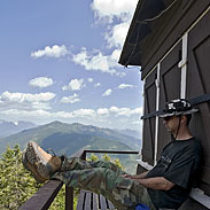Landscape Architecture for Landscape Architects › Forums › GENERAL DISCUSSION › Experience necessary before starting your own practice?
- This topic has 1 reply, 7 voices, and was last updated 16 years, 6 months ago by
Vanessa Lindley Santos.
-
AuthorPosts
-
August 20, 2009 at 4:43 pm #173208
 ncaParticipant
ncaParticipantHow much (minimum) experience do you all believe is necessary, on average, before starting your own practice?
In the interest of keeping the query simple, why does it seem to typically take young professionals so long to break off on their own even after they’ve gained licensure?
August 20, 2009 at 5:02 pm #173230Vanessa Lindley Santos
Participanti have a friend who has his own firm and he always tells me to just go for it – start doing projects and then go off when you can’t do both anymore (both meaning have a job that pays the bills and your own business)
August 20, 2009 at 5:35 pm #173229 ncaParticipant
ncaParticipantThanks for the reply Vanessa.
I’m sure there are a number of factors involved in the decision to stay or go and the timing such as comfort at your current job, responsibility to your family, and of course the time it takes to acquire enough experience and contacts to branch out on your own. Then I think there is the ‘just do it’ factor.
I can only liken this to my experience starting a landscaping business several years ago. I remember feeling like I was going down a list of things I felt I needed to learn before getting my own jobs syuch as how to wire a sprinkler manifold, or how to build a certain type of wall. I remember knowing that I wanted my own business and finally feeling like after four seasons as part of and finally running crews I was ready to begin making my own contracts and advertising in the local paper.
I went through the classic scenario of inadvertantly collecting my employers paychecks as I started out moonlighting and then finally quitting when I got my first full install project. For me, owning a business is exhilerating. There are good times and bad times, but all the while you are in nearly full control of how much money you will make that month or how much you will work.
I can’t imagine it being much different in landscape architecture. Ideally, starting out I would do design-build, run a small and experienced crew and/or take anything I can get while also doing things like illustration and anything else to help pay the bills.
My guess would be that some people naturally excel in an office/collaborative environment and some move up the ladder very quickly or have families and such which keep them working in offices.
Aside from that, I’m particularly curious as to what some of the entrepreneurial types here think is the average number of years of experience necessary to gain enough knowledge, contacts, and skill to take on a wide range of landscape architectural projects?
August 20, 2009 at 5:41 pm #173228 John BlackParticipant
John BlackParticipantTo the first question: Depends on what kind of a practice you want to have. You need experience in whatever you intend to do — not only types of projects but also business development, personnel management, etc. — or sufficiently connected to others who have that experience.
To the second: There’s a lot more to running a design firm, even a one-person studio, than designing. I would guess not every newly-minted LA is ready to become a business owner, or can afford to until they have a couple of good projects in hand.
Landscape Architecture magazine had a nice piece in the June 2008 issue featuring LAs who had struck out on their own, plus a few complementary articles this year. You might check the archives at asla.org
August 20, 2009 at 5:41 pm #173227 ncaParticipant
ncaParticipantThanks Andrew. Great analogy regarding the elevator.
Your top three list is basically what I suspected.
August 20, 2009 at 5:46 pm #173226Brian Hochstein
ParticipantYou asked for the minimum amount of experience. I think that it in nearly impossible to guage when to start a business based on solely your experience. It makes the query simple but hard to answer. My opinion is that if you looked a 4 key factors: experience, licensure, networking and niche you could probably decide whether or not you were ready. While I have not started my own practice I would concern myself with these factors first.
Experience: Do you have a solid breadth of experience? Do you understand all phases of design and construction? Have you gone through the process many times start to finish? Do others consider you an expert and ask for advice?
Licensure: Are you licensed? Do you have all of your necessary papers in order? Do you need to be licensed in multiple states? Are you prepared to incure all of these costs?
Networking: Are you known? Is your work known? Do you know many contractors, architects and design professionals? Would these individuals support you or offer you work?
Niche: Do you have something you are particularly good at? Something that not many others can do that can be your foundation and get you started? Is it something that is in demand and will be in demand for the near future?
With all that being said, there is always the overbearing concern of risk. That is just part of starting a business. It takes a lot of guts to get out there on your own. If you are considering it, I wish you the best of luck.
August 20, 2009 at 5:53 pm #173225 ncaParticipant
ncaParticipantThanks John.
It’s nice to hear it from the horses mouth. I wonder if, having a background in landscape construction, running a small crew and/or starting out targeting high end residential clients could be a good way to eventually break into the public sector. Given a wide and varied background and complementary set of skills, couldn’t a sole practitioner hypothetically start from ‘the ground up’ so to speak.
Could it be true that many less successful break-out design practices start out with too high of expectations in some sense?
August 20, 2009 at 5:57 pm #173224 Richard LongmanParticipant
Richard LongmanParticipantNone. Just the courage to know that when you have failures you can pick yourself up.
August 20, 2009 at 6:08 pm #173223 ncaParticipant
ncaParticipantThanks Brian. I am not considering it now Brian, but my goal would be to have a viable business at least part time within 5-10 years. I fully ackowledge that there is a lot more I stand to learn.
Though, I’m not sure that I agree one needs to wait to be considered or feel that they are themselves a ‘master’ to start a practice. In my own limited experience having a small (micro) business, there will always be things you don’t feel completely confident taking on or something you need to learn. I remember taking landscape jobs with things I would design, but had to learn how to build on the job. I think thats the true nature of owning your own business and probably at least one of the main factors, expected or not, which tends to burn people out or shy them away from working for themselves.
I’m also not sure I agree that one needs to expect to carve out a niche to have a viable practice. I think flexibility or better yet adaptability would be better qualities to have in starting a practice. I say this because I think there is a least a period starting out where one needs to scrap and take whatever they can get from illustration to web design to backyards, to parks- whatever.
I like Johns comments on simply knowing about and/or having experience in what you ‘plan’ to do. But I think being adaptable and versatile may be just as important. Licensure is probably good, but really only if you intend to take on public projects, otherwise it essentially becomes not much more than a marketing tool.
August 20, 2009 at 6:10 pm #173222 ncaParticipant
ncaParticipantThanks Richard, I appreciate the sentiment.
August 20, 2009 at 6:19 pm #173221Brian Hochstein
ParticipantNick, I am totally following you.
Let me elaborate on a couple of my factors briefly as I may have been confusing. When it comes to experience I completely agree that you do not need to be a master. I was more saying do you have a decent amount of experience? Have you done this and feel comfortable with the entire process? Then you can adapt to whatever else you need to learn.
I added niche as a way to get work from the get go. I believe if you have that niche it is easier to get started. Would I want to do the same thing over and over? No way. But I think it might give you a leg up at the start. Then diversify as soon as you can.
Finally, on licensure. I personally feel that getting your license is a natural and important step. I have not signed much at all since I got licensed. But I think it lends credibility to your practice.
All good thoughts and a great conversation.
August 20, 2009 at 7:18 pm #173220 ncaParticipant
ncaParticipant2. Money. Why has this not been mentioned yet? You will need to have a considerable amount of cash reserves to cover your operating expenses. A friend of mine who runs an independent planning consultant firm told me you should have at least 6 months of operating expenses…
I’m not sure there is a ‘formula’ per se to starting a business and what is right for one may not work for another. That said, I think some of the listed items above read a bit formulaic in that one must do xx to be successful.
I hope I can write candidly without taking an offensive tone, but I don’t necessarily agree that things like leased space or expensive equipment is necessary in starting a small practice. Many of the other things on the list seem more like things small business owners think they need.
I agree that having a savings is probably useful when starting out for myriad purposes, as well as the proper equipment, though I think there’s something to be said for keeping it simple as well.
Really though, I’m not necessarily asking ‘how’ to start a business as much as ‘when’ or better yet ‘why’ start a business, aside from the potential economic gain, and why it seems to take very talented people more than ten years to go for it, if at all.
August 20, 2009 at 7:33 pm #173219 ncaParticipant
ncaParticipantpoint taken…fyi I just edited because I think my initial response came off the wrong way.
I am picturing a home-based approach until contracts warrant otherwise or projects fall in my lap from the get-go, and things like office space become necessary.
I think we’re on the same page.
August 20, 2009 at 11:02 pm #173218 Chris WhittedParticipant
Chris WhittedParticipantInformative/stimulating discussion! To throw my own two cents in, for the first question I’d say none to very little. For the second, I’m not sure there is any single answer to that.
Toward both questions, it takes a certain kind of person to start and run a business no matter the size, type, or style. This is not to say that if you don’t ‘fit the profile’ you can’t do it, but some things will be more work, effort, and learning. I think some past discussions I’ve had with one of my hobbies, photography, are fairly relevant here. You can take excellent or even stunning photos, but being a photographer is one thing and running a photography business is a whole other ballgame. You’ll spend more time selling yourself and actually running the business than you will doing photography. I know a number of people who don’t run their own firms because of this – they like doing the work, not running a business.
Some people can be very successful starting from scratch because they’re just as good or better at the ‘business’ side of things as actually practicing the profession. And what you set out to do plays a large part as well – if you’re just going to be a design consultant, the resources and management required won’t be as extensive as if you launch a design/build and are running your own staff/crew. If you specialize in one aspect of the profession and there’s a niche for it, you’ll have a different experience (and need different experience) than if you want a more general practice that targets and performs work through all phases of a project.
August 21, 2009 at 12:06 am #173217 ncaParticipant
ncaParticipantOkay, but isn’t it also safe to say that a person could go their entire life learning new ways of doing things? In other words, is there ever a time in your life when you know everything?
-
AuthorPosts
- You must be logged in to reply to this topic.


